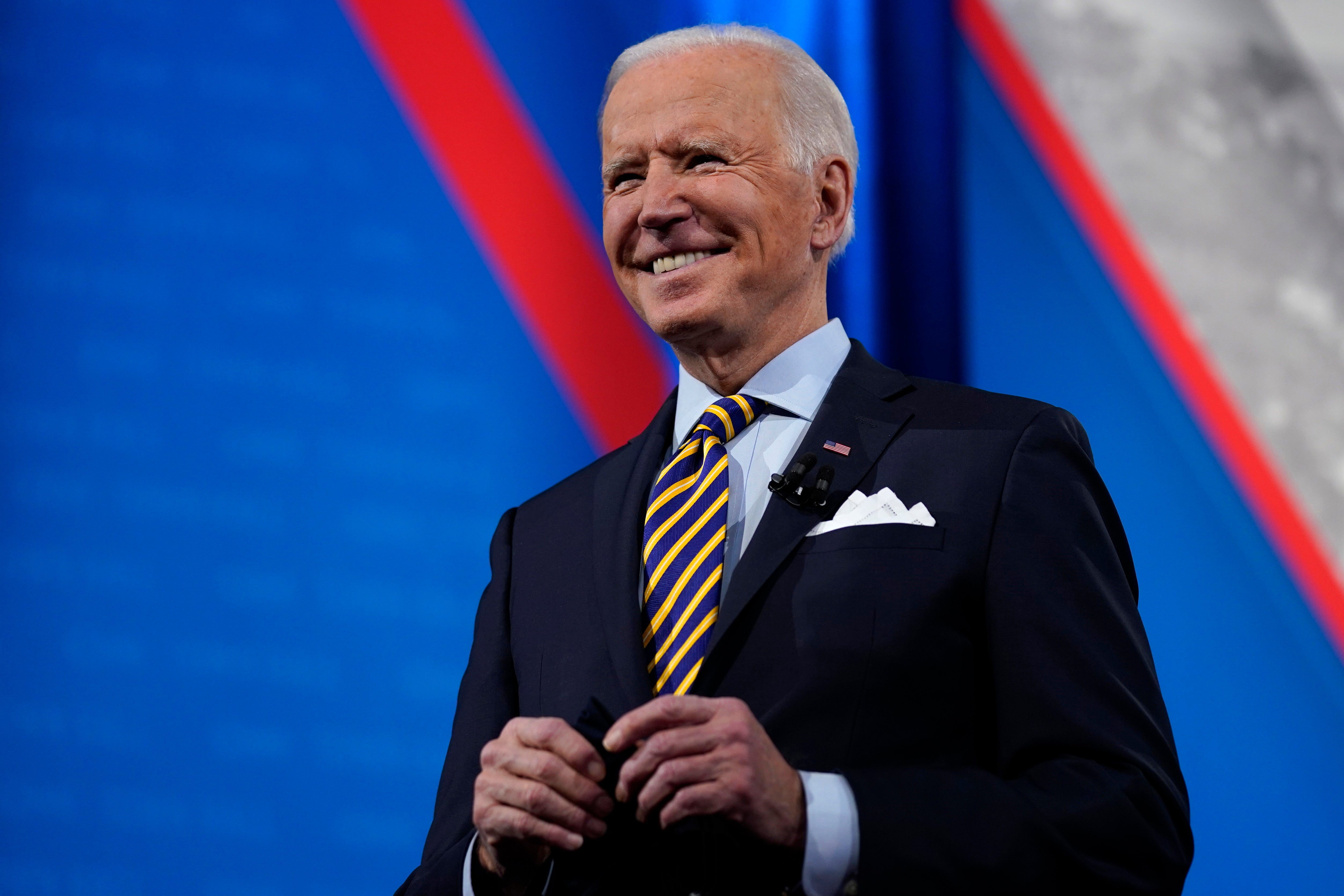AP FACT CHECK: Biden and his shifting goalposts on schools
How do you define success when it comes to reopening schools in the pandemic

Your support helps us to tell the story
From reproductive rights to climate change to Big Tech, The Independent is on the ground when the story is developing. Whether it's investigating the financials of Elon Musk's pro-Trump PAC or producing our latest documentary, 'The A Word', which shines a light on the American women fighting for reproductive rights, we know how important it is to parse out the facts from the messaging.
At such a critical moment in US history, we need reporters on the ground. Your donation allows us to keep sending journalists to speak to both sides of the story.
The Independent is trusted by Americans across the entire political spectrum. And unlike many other quality news outlets, we choose not to lock Americans out of our reporting and analysis with paywalls. We believe quality journalism should be available to everyone, paid for by those who can afford it.
Your support makes all the difference.How do you define success when it comes to reopening schools in the pandemic? President Joe Biden and his aides are having difficulty settling on an answer to that question.
At his town-hall forum Tuesday night, Biden denied that his administration ever thought one day of classroom instruction a week would be enough to declare victory in his pledge to get most schools for younger children open by spring. That's dubious, given the conflicting account provided by his press secretary last week.
Also at the event, Biden at one point said no vaccines had been deployed when he took office. It was a one-off slip. At other times in his remarks, he said millions of doses had been administered during the Trump administration and more accurately characterized the conditions he inherited.
From the CNN event in Milwaukee:
BIDEN, asked about assertions from the White House that at least one day a week of classroom schooling would deliver on his reopening pledge: "No, that’s not true. That’s what was reported. That’s not true. That was a mistake in the communication."
THE FACTS: That's a stretch. A mere mistake by the White House could have been corrected by the White House days ago.
The argument that four days of schooling at home and one in the classroom could constitute success drew plenty of criticism. So the White House has changed its tune on the 100-day goal and is aiming higher.
A week ago, White House press secretary Jen Psaki said Biden's goal "is to have the majority of schools — so, more than 50% — open by day 100 of his presidency. And that means some teaching in classrooms. So, at least one day a week. Hopefully, it’s more.”
A day later, she said the once-a-week minimum is “the bar of where we’d like the majority of schools across the country to be, which they’re not at this point in time, and we want to build from there.”
A day after that, she dodged a question about once-a-week classroom instruction except to acknowledge parents shouldn’t be satisfied with just that. Psaki began emphasizing the president's wish to see teaching fully restored to the classroom but didn't peg that to 100 days or any timetable.
Biden has already backpedaled on a related front. He pledged in December to get most schools reopened during his first 100 days, but specified last month that the goal applied only to schools that teach through eighth grade. On that point, Psaki closed out last week saying, “I’m not going to set a new goal today.”
Biden told his town-hall audience his goal is five days of classroom instruction and “I think we’ll be close to that at the end of the first 100 days.”
___
BIDEN, on the need to have more people administering COVID-19 vaccines: “It's one thing to have the vaccine, which we didn’t have when we came into office, but a vaccinator. How do you get the vaccine into someone’s arm?”
THE FACTS: That, of course, is wrong. Two vaccines were developed, under distribution and going into people's arms in the U.S. before Biden took office — just not nearly enough.
Americans started getting vaccinated in mid-December, the week after Britain delivered the first shots.
Before his slip, Biden said 50 million doses were available when he became president but “there was nothing in the refrigerator figuratively and literally speaking,” meaning no backup stock to draw from in those early weeks.
___
EDITOR’S NOTE — A look at the veracity of claims by political figures.
___
Find AP Fact Checks at http://apnews.com/APFactCheck
Follow @APFactCheck on Twitter: https://twitter.com/APFactCheck